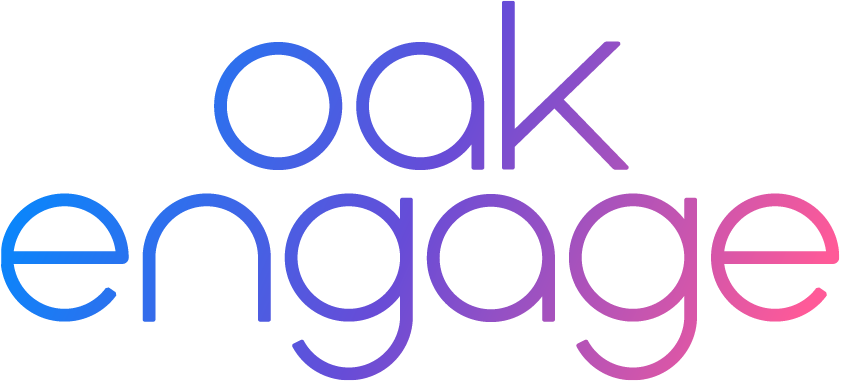Internal communications tools are integral to your business. They maximise engagement and productivity in your employees.
An organisation's productivity increases by up to 25% when employees feel connected. But, it’s not something achieved without proper action.
A workforce made up of remote and deskless workers makes encouraging internal communication so important.
You may be thinking ‘ it makes sense, but I need practical suggestions’. Not to worry, we will be revealing internal comms tools you can choose for your business.

In our guide to internal communications tools we will look at:
- Examples of Internal Communication Tools
- Modern Internal Communication Tools
- Internal Communication Tools: A Collaborative Effort
Examples of Internal Communication Tools
Generally speaking, every business has internal comms channels. However, even if they do what they say on the tin, they might not integrate.
Here is a list of just some of the common employee communication tools:
- Traditional Intranet
- Microsoft Teams
- Zoom
- Slack
- Google Meet
- Google Drive
- Microsoft Office
The likelihood is your workplace will use at least one if not more of these. But having many, disconnected internal communication tools is bound to cause confusion.
Using several different channels of collaboration can bring about problems. Oak’s solution integrates with your applications, including Office 365, Google Suite, Microsoft Teams, Sharepoint and Workday to name a few.
Modern Internal Communication Tools
The evolving workforce has intensified the need for innovation when it comes to collaboration.
Organisations who embrace modern technology generally fare better when it comes to internal communication.
Here are some modern internal communication tools your business can utilise to maximise engagement and productivity:
Cloud Based Intranet
Traditional intranets can be clunky and only accessible through work servers or desktops. They sometimes have a poor reputation, but modern intranets don’t really reflect that.
A cloud based intranet solution like Oak’s, means that you can connect a global workforce, anywhere. Cloud software enables heightened connectivity and is far more accessible than traditional intranets.

Recommended Reading 📖: What is a Modern Intranet?
Employee Social Platform
Branding is as important internally as externally. But, ensuring your employees are aligned with your company’s brand can be tricky.
Customisable homepages allow you to design your intranet in line with your brand. Your employees can read company news and updates in an interactive way through social feeds. . They can also interact with one another whey they engage with posts by commenting or liking.
Mobile App
When you have deskless workers, accessing information while on the go is something employees can not do without. Mobile technology has made it possible for you to do this.
Oak’s mobile application with all features integrated, means communication and information channels are always there when you need them. Your employees will never be too far away from their desk.

Employee Communities
According to Gallup, 85% of employees are not engaged at work. Now that is a worrying statistic!
Social Hubs and communities bring like-minded people together. Whether it be sharing information with a select group or discussing mutual interests, social hubs can replicate the water-cooler in the remote workforce.

Recommended Reading 📖: 21 Scary Internal Communications Stats
Internal Communication
With the increase of remote working, a lot of internal communication is solely done through software. Everything from our morning team calls to organising the work five-a-side is done with the help of tech.
Software such as Slack and Microsoft Teams allow for internal communication in the form of messaging and video conferencing. Suitable solutions will allow for interactions with individuals and groups.
Employee Collaboration
Collaboration between teams and departments is made so much easier when colleagues are reachable in just a few clicks.
Communication and project management tools are an integral part of any project. A task management platform like Monday or MeisterTask delegates actions to specific individuals , so employees understand their roles and responsibilities .
Company News and Social Feeds
Company updates through email can often get lost in the pile and means some will be missing out on important information.
This can cause a lack of transparency within the business. Oak’s social timeline will keep employees engaged and informed. Content feeds not only help relevant information to reach the relevant people, your employees can also interact with content.

Employee Wellbeing
An Oak study found that over a third of remote workers say working from home has dramatically affected their mental health. More than ever before it is important to invest in employee’s physical and mental wellbeing.
There are internal comms tools to help. Kona is a program that lets employees record their moods. By monitoring you can avoid employee burnout and stress by spotting the signs early.
Employee Voice
Having an honest and open environment can solve so many issues, but you need to practice what you preach . A digital suggestion box like Suggestion Ox can encourage employee feedback with anonymity, taking away some of the discomfort.
Pulse survey tools like Qualtrix and Smart Surveys will also enable you to take employee feedback on a regular basis.
Employee Appreciation/Recognition
Recognition and appreciation tools allow employees to give and receive commendation from peers and managers in a digital space.
Applications like Nectar and Kudos highlight good work and play an integral part in rewards programmes. 91% of HR leaders say recognition makes it more likely to keep an employee. If employees don’t feel valued for their work do they have less of an incentive to continue it.

Content Management
Professionals spend roughly 50% of their time searching for documents . Imagine how much more productive you could be with all of that time back!
Disparate content sources cause a lot of confusion in the workplace. With uniformed content and document management in one place can help eradicate that issue.
A document management platform makes both uploading and accessing documents a simple task. It increases productivity and helps to align processes throughout departments and the organisation as a whole.

Internal Communication Tools: A Collaborative Effort
All of these internal communication tools will contribute to a more collaborative workforce. But, in order to fully utilise internal communication tools, they must work together and not as separate entities.
Your organisation’s internal communication is the product of strategy, tools and integration. All three need to be right.
Here are five negative effects of having poor internal communication and tools.
1. Reduced Productivity
When we told you professionals spend 50% of their time looking for documents, it was made quite clear the significance of lost time due to poor document management and collaboration.
When your employees aren’t aware of content locations they lose valuable time better spent on other aspects of their role. Issues with productivity can be the result of a lack of communication and collaboration within teams.

2. Lower Morale
If employee morale is low in the business, it will be linked to internal communication in some way. Whether it be through lack of appreciation, feeling isolated at work or not having the tools to do your role to the best of your ability, they are all products of poor internal communication.
3. Higher Turnover of Staff
According to Gallup, businesses that engage their employees saw an 18% decrease in turnover. If you want to keep hold of your employees you should be thinking about how to improve engagement.
Usually disengaged employees don’t feel a connection with the organisation. It’s important to communicate with your employees so you understand why they feel this way and what will improve the situation. Basically, if you want to retain your best talent, communicate, communicate, communicate.

4. Lack of Collaboration
Collaboration between teams and departments helps boost innovation. But they cannot do that without the tools to communicate. If an organisation does not facilitate collaboration, what it is actually doing is confusing processes and quashing innovation. This in turn will limit the businesses progress as a whole.
5. Mistrust in the Business
Poor communication from those at the top does nothing to command transparency. If employees don’t feel fully informed they will also feel undervalued.
Regular company updates through your intranet social feed will help the business to relay a culture transparency from the very top. If you want your employees to trust you, you have to earn it first!
The Solution
Wow that’s a lot of info to take in, surely I can’t apply all of this to my business? We’re here to help. Oak’s cloud based solution allows for all of the necessary employee communication tools to integrate seamlessly with each other.
Our innovative software can integrate with your existing tools but add innovation in the form of engaging social platforms, community hubs, document management platforms and more.
Check out Oak’s features and how they can help boost your internal communications.
FAQs
What are the best internal communication tools?
The best internal communication tools are the ones that engage your employees and integrate seamlessly with each other. Five of the best are:
- A cloud-based intranet
- Mobile application
- Community and social hubs
- Centralised knowledge base
- Feedback surveys
What are examples of internal communication?
There are many different examples of internal communications with the dynamics of stakeholders and their interactions being so different. Five examples of internal communication are:
- Leadership communication
- Employee-generated communication
- Peer-to-peer communication
- Team collaboration
- Change and campaign communication



